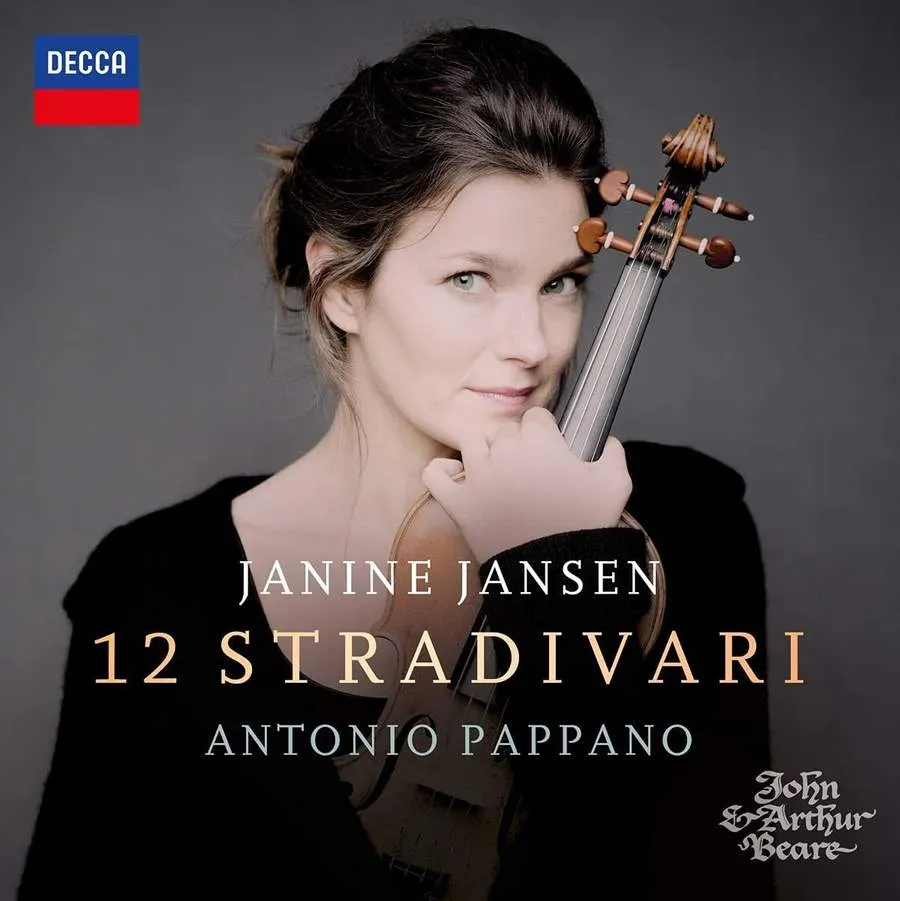
12 Stradivari Works by Elgar, Falla, Heuberger, Kern, Kreisler, Rachmaninov, Ravel, C & R Schumann, Suk, Szymanowski, Tchaikovsky and Vieuxtemps Janine Jansen (violin), Antonio Pappano (piano) Decca 485 1605 59:40 mins
A celebration of the violinists who have previously played these instruments, as well as their distinguished maker, the repertoire here is skewed towards the late-19th and early-20th centuries, with nothing from Stradivari’s own time. Most of the pieces are lyrical at heart, although the opening ‘Spanish Dance’ from Falla’s La Vida Breve and Szymanowski’s ‘Fountain of Arethusa’ fizz with energy. They also point up the broad differences between violins from different periods, with the 1699 instrument in the Szymanowski clearer and lighter in tone than the one from 1734 in the Falla.
But, overall, what leaps out is the sheer quality, consistency and stylishness of Janine Jansen’s playing. She conjures up the mood of each piece with seemingly effortless and flawless technique, whether it’s the yearning of Suk’s ‘Love Song’ and Lensky’s aria from Tchaikovsky’s Eugene Onegin, or the playfulness of Kreisler’s Syncopation, where she uses one of the violins that Kreisler himself owned.
Antonio Pappano is a sensitive partner, bending the pulse of the music to respond to Jansen’s organic rubato: Ravel’s Vocalise and Elgar’s Sospiri are especially effective, although I could do with a little more freedom in the Andante from Rachmaninov’s Cello Sonata (and miss the lower sounds of the original). Both Robert and Clara Schumann are represented, giving another demonstration of the tonal difference between instruments from 1680 and 1718, but nerdish train-spotting isn’t really the point. This is an immensely enjoyable, well-planned sequence of short pieces, with a warmth of sound that matches the music.
Martin Cotton